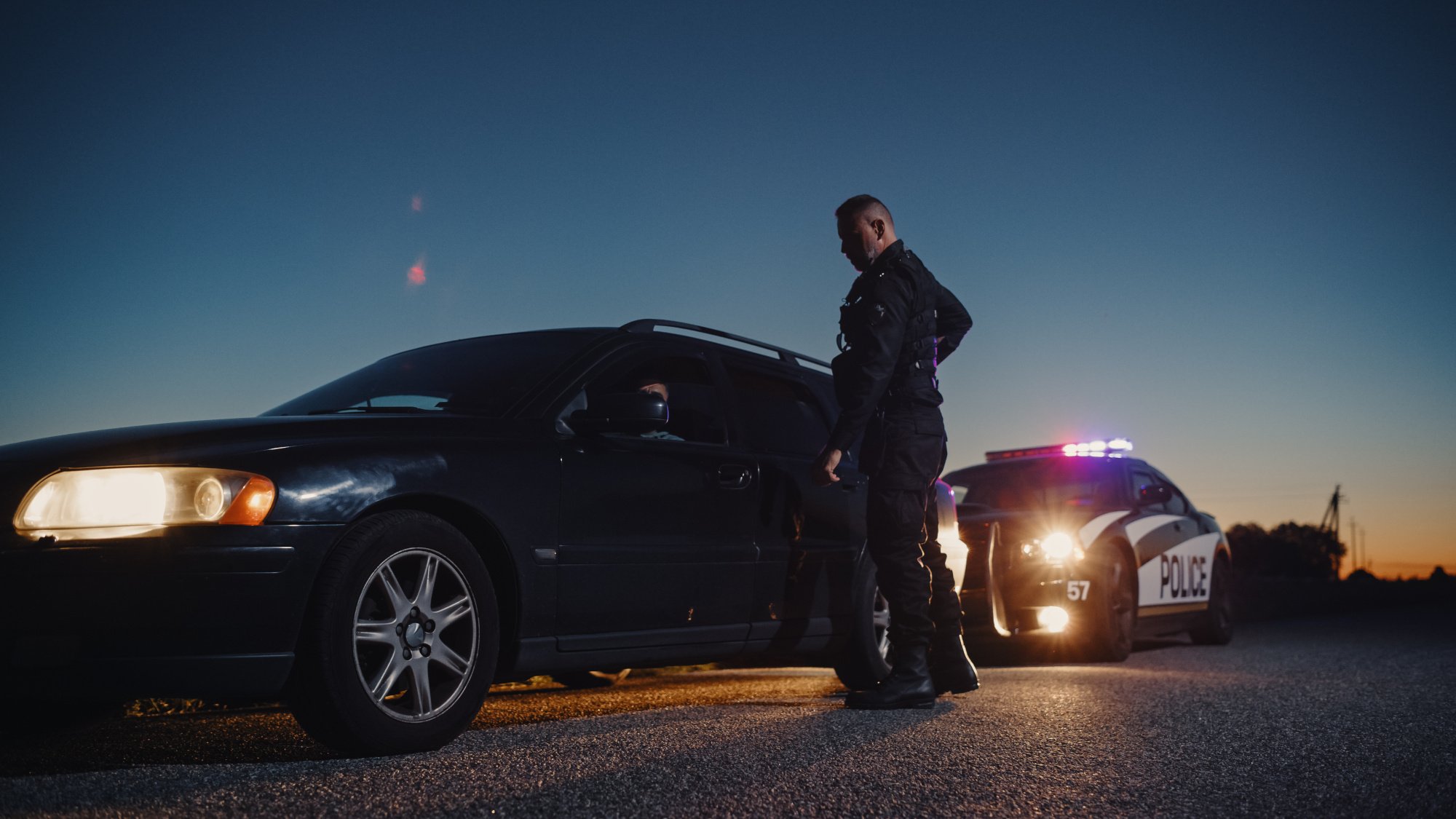DWI in Texas: The Ultimate Guide to Laws, Penalties, and Help
Getting a DWI in Texas is a serious problem that can turn even worse if you don't face the offense and the underlying issues head-on. Whether this is your first time with a Driving While Intoxicated (DWI) or you're helping someone navigate this challenging situation, it’s vital that you understand the laws, penalties, and available support.
At New Day Recovery Services, we recognize that a DWI charge is often a turning point. Our comprehensive recovery programs, including outpatient care, intensive outpatient treatment, and supportive, gender-specific sober living homes, are designed to guide individuals toward lasting recovery and a fresh start.
This guide covers everything you need to know about dealing with a DWI charge in Texas and provides practical steps for moving forward.
What Is a DWI in Texas?
An individual can be lawfully charged with a DWI in Texas if they are positively tested as legally intoxicated. The legal limit for DWI in the state of Texas is a blood alcohol concentration (BAC) is 0.08% or higher. However, individuals can still be charged even if their BAC is lower if their driving ability is impaired by alcohol or drugs. Texas law does not distinguish between alcohol and controlled substances when it comes to DWI charges. A DWI in TX is similar but not the same as a DUI (Driving While Under the Influence). DWI and DUI in Texas are often confused, but the main difference is that a DUI applies to minors (under the age of 21) who test positive for any substance at any BAC level.
Penalties for a DWI in Texas
The penalties for a DWI are variable and are contingent on a few different factors, like the number of prior offenses, the driver’s BAC level, whether there were passengers under 15 years old, and whether any injuries or deaths occurred. To better determine the consequences of driving while intoxicated in TX, here is a breakdown.
First Offense DWI in Texas
A first offense DWI in Texas can result in:
Up to a $2,000 fine
3 to 180 days in jail
Loss of driver’s license for up to a year
Annual surcharge of up to $2,000 for three years to retain a license
Second Offense DWI in Texas
While the consequences of a DWI in Texas 1st offense are steep, the penalties continue to get more severe, as we see in these DWI in Texas 2nd offense outcomes:
Up to a $4,000 fine
1 month to 1 year in jail
License suspension for up to two years
Annual surcharge of up to $2,000 for three years
Third Offense DWI in Texas
A 3rd DWI in Texas becomes a felony, with tough consequences such as:
Up to a $10,000 fine
2 to 10 years in state prison
License suspension for up to two years
Mandatory ignition interlock device installation
What Happens When You Get a DWI in Texas
Whether this is your first time or your third DWI in Texas, here’s what you need to know if you find yourself arrested in Texas for driving while intoxicated:
Arrest and booking — Law enforcement will take you into custody, and you will go through the booking process at the local jail. This includes fingerprints, photographs, and documentation of the charges.
Administrative license suspension — You have 15 days from the date of your arrest to request a hearing to contest your driver’s license suspension. If you fail to request a hearing, your license will be automatically suspended.
Initial court appearance (arraignment) — You will be required to appear before a judge. You're formally charged at this hearing and given the opportunity to plead no contest, not guilty, or guilty.
Pre-trial proceedings — Your attorney may negotiate with prosecutors, file motions to suppress evidence, and work toward a reduction or dismissal of the charges.
Trial or plea deal — If no agreement is reached, your case will go to trial. Sentencing will follow if you accept a plea bargain or plead guilty.
Sentencing — Penalties may include fines, jail time, probation, required alcohol education classes, community service, and installation of an ignition interlock device.
Understanding these steps can help you make informed decisions and reduce the stress of the process.
Other DWI-Related Charges in Texas
Texas law includes several related offenses that can carry additional penalties.
DWI with a child passenger
Driving intoxicated with a passenger under 15 years old is a felony, punishable by:
Up to a $10,000 fine
180 days to 2 years in state jail
Loss of driving privileges
Intoxication assault
If intoxicated driving causes serious bodily injury, the driver can face:
Up to 10 years in prison
Significant fines
Possible civil lawsuits
Intoxication manslaughter
If intoxicated driving results in death, the penalties include:
2 to 20 years in prison
Up to a $10,000 fine
Civil liability for wrongful death
Field Sobriety and Chemical Tests
When suspected of DWI, Texas law enforcement may use field sobriety tests or request chemical testing such as breath, blood, or urine samples. Refusing a chemical test can result in an automatic license suspension under Texas’s implied consent law, even if the person is not ultimately convicted of DWI.
License Suspensions and Occupational Licenses
Losing your driver’s license after a DWI is common, but some individuals may be eligible for an occupational license. This special restricted license allows you to drive to work, school, and necessary appointments during your suspension period.
Applying for an occupational license typically requires:
A petition to the court
Proof of financial responsibility (SR-22 insurance)
Possible installation of an ignition interlock device
DWI and Criminal Records in Texas
A DWI conviction can stay on your criminal record permanently in Texas. This can affect employment opportunities, insurance rates, housing applications, and professional licensing. In some instances, a DWI in Texas first offense may be eligible for a nondisclosure order (also called "sealing" the record), but strict requirements apply.
Treatment Options for Substance Use Disorders in Texas
A DWI charge often signals deeper struggles with alcohol or drug use. Seeking help is not just beneficial for legal outcomes; it is a step toward lasting recovery. Many judges view participation in rehabilitation programs, such as alcohol addiction treatment in San Antonio, TX, favorably during sentencing, and some require it as part of probation.
New Day Recovery Services offers comprehensive outpatient care, including:
Partial Hospitalization Program (PHP)
Intensive Outpatient Program (IOP)
Virtual Intensive Outpatient Program (VIOP)
Gender-specific sober living homes for men and women
Our programs are designed to provide flexible, high-quality care for individuals committed to rebuilding their lives after a DWI. Whether you need structured support or a safe place to continue your recovery journey, we are here to help.
Addressing substance use issues early can help you move forward with confidence and stability.
How To Get a DWI Dismissed in Texas
Getting a DWI dismissed in Texas is possible, but it requires a strong legal strategy and attention to detail. Some of the most common ways a DWI case can be dismissed include:
Challenging the legality of the traffic stop
Questioning the accuracy or administration of field sobriety tests
Disputing the results of breath or blood tests
Showing that the officer lacked probable cause for arrest
Highlighting procedural errors or rights violations
Consider using a qualified DWI attorney who can review the evidence and build a defense aimed at reducing or perhaps even dropping the charges altogether. While there's no guarantee the charges will be dismissed, a strong legal defense can increase the chances of a more favorable outcome.
How a DWI Attorney in Texas Can Help
Navigating a DWI charge alone can be overwhelming. An experienced DWI attorney can:
Review and challenge the legality of the traffic stop or arrest
Question the accuracy of sobriety tests
Negotiate plea deals or reduced charges
Represent you at administrative hearings regarding license suspension
Advocate for alternative sentencing, such as treatment or diversion programs
Legal representation can make a major difference in the outcome of your case.
Steps To Take After a DWI Arrest in Texas
If you or a loved one has been arrested for DWI in Texas, it is important to act quickly:
Request an ALR (Administrative License Revocation). Do this within the first 15 days after you've been arrested to contest your license suspension.
Hire an experienced DWI attorney.
Consider enrolling in a treatment program, such as an alcohol, drug, or marijuana addiction treatment in San Antonio, TX, if substance use contributed to the arrest.
Attend all court dates and comply with any conditions of release.
Taking prompt and responsible action can improve your chances of a better outcome.
Final Thoughts on Facing a DWI in Texas
Facing a DWI in Texas is serious, but it does not have to define your future. Understanding your rights, seeking legal support, and addressing any underlying substance use issues can help you rebuild your life. Recovery and redemption are possible with the right support system.
New Day Recovery Services is here to help anyone struggling with substance use issues connected to DWI charges. Reach out today to learn more about our programs and take the first step toward a better future.
FAQs About DWI in Texas
-
A DWI in Texas is usually a misdemeanor for a first or second offense. However, it can become a felony if it is a third offense, if someone was injured or killed, or if there was a child passenger in the vehicle at the time of arrest.
-
Jail time is possible but not always mandatory for a first DWI in Texas. Many first-time offenders receive probation, community service, or other alternatives. However, the law does allow for jail sentences of 3 to 180 days, depending on the circumstances.
-
Yes, it is possible to be charged with a DWI while riding a horse in Texas. Texas law allows for DWI charges when operating a "vehicle," and courts have sometimes considered horses as vehicles under the law. However, these cases can be complicated and are handled differently from motor vehicle DWIs.
-
The cost of a DWI lawyer in Texas varies. Cost fluctuations are based on the location of the lawyer, experience level, and complexity of your case. On average, fees range from $2,000 to $10,000 or more. Some cases with trials or complicated legal issues may cost significantly more.
-
The total cost of a DWI in Texas can be very high when you add up fines, court fees, surcharges, increased insurance rates, legal fees, and possible loss of income. A first-time DWI can easily cost between $10,000 and $20,000 over time.
-
Your license is not suspended immediately after a DWI arrest in Texas, but it can be suspended quickly if you do not act. You must act within 15 days from the date of your arrest to request a hearing to contest the suspension. If you fail to request a hearing, your license will be automatically suspended.
-
In most cases, a DWI conviction cannot be expunged in Texas. However, if your case was dismissed or you were found not guilty, you may qualify for expunction. Some first-time DWI offenders may also qualify for a nondisclosure order to seal the record from public view.
-
A DWI in Texas is the charge for adults who operate a vehicle while impaired by alcohol or drugs. Alternatively, a DUI (Driving Under the Influence) in Texas applies to minors under 21 who are caught with any detectable amount of alcohol or drugs (or both) in their system. DWI charges are more serious and carry harsher penalties.


